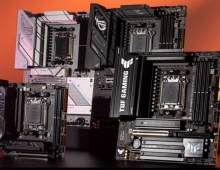
Intel, Philips Form Consumer Alliance
Intel and electronics group Philips have joined up to market home entertainment systems with Intel chips, as the world's top chip maker targets the $70-billion-a-year market for consumer electronics semiconductors, according to a Reuters report.
Intel will supply a processor, chipset and software for a Philips media center that will allow customers to store and share photos, music and video in a single system, as they promote digital products for the home.
The PC-based Philips Showline Media Center will include a card that allows users to watch two TV channels at once, as well as a 250-gigabyte hard disk drive for storing music and photo collections and a recorder for DVDs and CDs.
While the first products are closely related to personal computers, running Microsoft Windows software, Intel aims to expand into chips for a broad range of networked consumer electronics devices, including advanced televisions, in a journey that will take the company several years to complete.
"We will hit the market with the right products and price points in 3 to 5 years. We still have some room to improve, but we are patient. Not too patient, but patient enough," Intel's head of Digital Home Group, Don MacDonald, said in an interview.
The consumer electronics industry uses chips worth $70 billion a year, roughly one-third of total worldwide chip sales.
MacDonald said that as consumer products become connected, they need more powerful and versatile chips that Intel can supply if it can integrate many functions on a smaller, cheaper chip that uses little power.
"We're not designing for simple, analog products. We're designing for interactivity. We've been talking about the digital home for 10 years, and now it has come of age," he said on the fringes of IFA, the world's biggest consumer-electronics trade fair in Berlin.
New, connected devices and services will allow consumers to watch their favorite movies or sports games wherever they are. Intel is trialing such services with German computer maker Medion and Bertelsmann and results of the test are expected within several months, it said.
Intel, which last month launched a new type of personal computer called Viiv based on Microsoft's Windows Media Center Edition operating system and aimed at the digital living room, has been trying to break into the cutthroat consumer electronics business for years.
So far, the personal computer industry has been unable to sell in large volumes a device that successfully marries television and the personal computer.
In a parallel move, Intel started a charge for the cellular phone market over three years ago, but has not yet been very successful in winning over handset vendors like Nokia and Motorola to use its chips in a wide range of models.
The PC-based Philips Showline Media Center will include a card that allows users to watch two TV channels at once, as well as a 250-gigabyte hard disk drive for storing music and photo collections and a recorder for DVDs and CDs.
While the first products are closely related to personal computers, running Microsoft Windows software, Intel aims to expand into chips for a broad range of networked consumer electronics devices, including advanced televisions, in a journey that will take the company several years to complete.
"We will hit the market with the right products and price points in 3 to 5 years. We still have some room to improve, but we are patient. Not too patient, but patient enough," Intel's head of Digital Home Group, Don MacDonald, said in an interview.
The consumer electronics industry uses chips worth $70 billion a year, roughly one-third of total worldwide chip sales.
MacDonald said that as consumer products become connected, they need more powerful and versatile chips that Intel can supply if it can integrate many functions on a smaller, cheaper chip that uses little power.
"We're not designing for simple, analog products. We're designing for interactivity. We've been talking about the digital home for 10 years, and now it has come of age," he said on the fringes of IFA, the world's biggest consumer-electronics trade fair in Berlin.
New, connected devices and services will allow consumers to watch their favorite movies or sports games wherever they are. Intel is trialing such services with German computer maker Medion and Bertelsmann and results of the test are expected within several months, it said.
Intel, which last month launched a new type of personal computer called Viiv based on Microsoft's Windows Media Center Edition operating system and aimed at the digital living room, has been trying to break into the cutthroat consumer electronics business for years.
So far, the personal computer industry has been unable to sell in large volumes a device that successfully marries television and the personal computer.
In a parallel move, Intel started a charge for the cellular phone market over three years ago, but has not yet been very successful in winning over handset vendors like Nokia and Motorola to use its chips in a wide range of models.





















